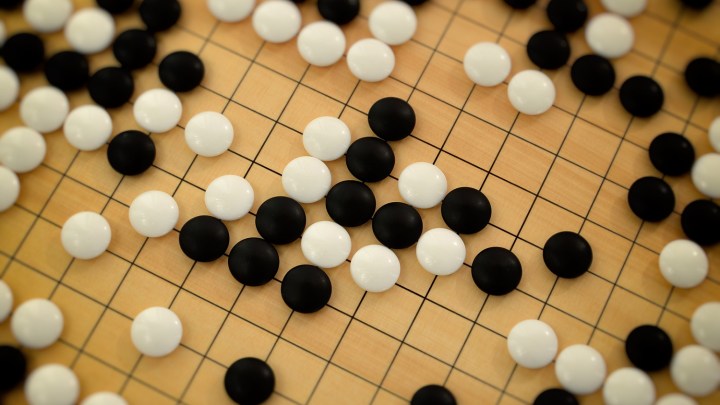
While this will be the first time that the two play in meatspace, Ke Jie was among the players that lost to AlphaGo in January when it secretly won 50 out of 51 online games against some of the world’s best (one game was a draw due to lost internet connection). The odds don’t seem good for Ke Jie, who ran into fellow professional player Ali Jabarin after his loss in January, shell-shocked and muttering “it’s too strong …”
The summit will feature presentations by AI experts from Google and China in addition to show matches with AlphaGo and presumably other Go-playing AIs. In one particularly gruesome spectacle, reminiscent of the Roman Colosseum, AlphaGo will face off against a team of five human players working together. There will also be matches featuring human players paired up with their own instance of AlphaGo, competing as teams. In the post-Kasparov world of chess, this sort of human-AI symbiote has proven to be more effective than either humans or AIs alone, combining the best of AI’s brute-force computational strength with human intuition.
AlphaGo made waves by defeating a succession of world-class players in public matches, first taking down former European champion Fan Hui in January 2016, then South Korea’s Lee Se-Dol in March. Much to their credit, the Go community’s luminaries are handling their impending obsolescence with much more grace than Russian chess grandmaster Garry Kasparov did his defeat at the hands of IBM’s Deep Blue.
DeepMind co-founder Demis Hassabis quoted Chinese player Gu Li as saying: “Together, humans and AI will soon uncover the deeper mysteries of Go,“as well as fellow Chinese pro Zhou Ruiyang saying: “AlphaGo’s play makes us feel free, that no move is impossible. Now everyone is trying to play in a style that hasn’t been tried before.” Part of AlphaGo’s strength is that it makes moves which feel fundamentally foreign to human players steeped in Go’s millennia of tradition and strategy, allowing for players to discover new approaches to an ancient game.
AlphaGo is just the latest game-playing AI to defeat the best human players earlier than it was thought possible, following Chinook in checkers and Deep Blue in chess. With analog games falling left and right, scientists have set their sights on video games like StarCraft, which is orders of magnitude more complicated to solve due to of hidden information, asymmetry, and real-time play. While it currently feels inconceivable for an AI to take on a human StarCraft pro, the same was said about Go just a few years back, so top players like Flash or Mvp may need to start saving room for a piece of humble pie.


